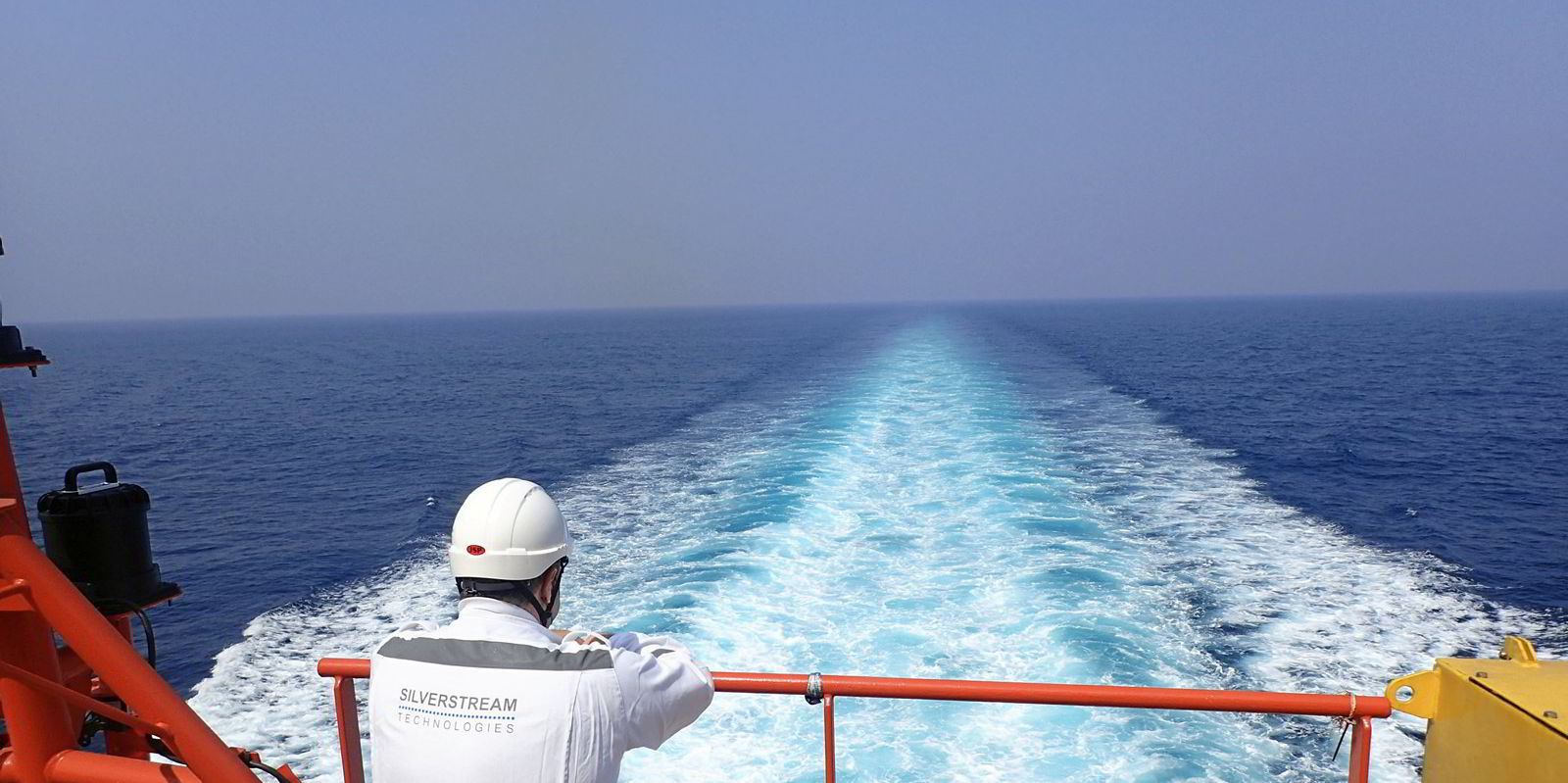Some 244 air lubrication systems have been ordered to date, leaving an immense market of ships that could reduce fuel consumption by using microbubble technology.
Silverstream Technologies has contracted 110 of those orders to date, and the company said some of the remaining 134 orders by other companies include legacy systems that did not work and are no longer in use.
Noah Silberschmidt, the UK-based technology company’s chief executive and founder, said that upcoming carbon regulations are serving as a tipping point for the industry’s use of air lubrication.
“There is an increased focus of making sure that you adhere to the current regulation, but also the future expectations of what fuel ships are going to use,” he said.
In the near term, the drivers are the International Maritime Organization’s Carbon Intensity Indicator regulation, the Energy Efficiency Design Index for newbuildings and a similar index for existing ships that enters into force at the start of 2023.
But looking further forward, the path to net zero carbon emissions will result in the need for greener fuels, which are more expensive.
“So if you are going into greener fuels, you do need to make sure that your ship is as efficient as possible,” he said. “So that will help a company like ours that has well-documented net savings.”
Silverstream said its systems can lead to 5% to 10% fuel savings. While cruise giant Carnival Corp has seen savings in the range of 5% to 6% at optimal speeds, other vessel types, particularly those that have large flat bottoms on their hulls, can see higher savings.
Faster vessels also have better paybacks, he said.
Silberschmidt has big growth ambitions as shipping tackles fuel consumption.
The executive said he would like to see air lubrication become a standard application for newbuildings, with for example half of the world’s 1,400 newly constructed commercial vessels per year featuring microbubble technology.
“We view that there are about 15 to 20,000 vessels now that are young enough, big enough, interesting enough that would be applicable for retrofitting,” he said.
“We are expecting, of those vessels, let’s say 1,000 vessels a year will be retrofitted.”
This article has been amended since publication to reflect that Silverstream has won 110 orders for air lubrication systems, meaning the global total is 244.




